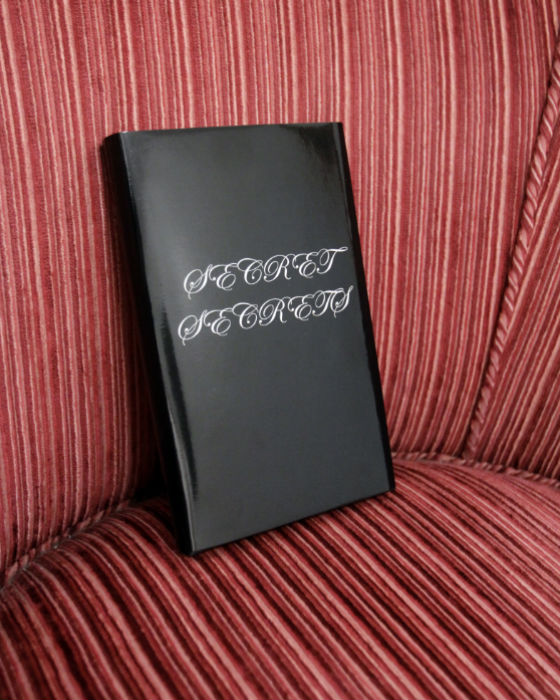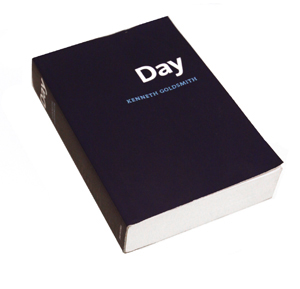Forget in Ten Parts is a ten-part weekly series by AFC's Curatorial Fellow, Guy Forget, focusing on the aesthetics of impermanence. This week Guy presents two text based works and talks a little about disposable content.
[Editor’s note: Guy Forget has requested this piece run wholly unedited, a wish I have clearly granted.]
Disposable content: Like sands through the hourglass, so are the days of our lives increasingly intertwined with media. Most of this is disposable content, meant to be consumed absentmindedly and systematically set up in such a way to be compelling enough to intellectually paralyze the viewer/receiver and make them compulsively passive and, ideally, hollow out their spirits so that they need more and more to feel like a human being. Through mediated, culturally acceptable action, temporary solutions. Now (which is just a moment on the way to the future) it’s such that we can basically tailor our consumption of disposable content perfectly to our sensibilities. It’s a nice time to want something ill-defined, to be frantically searching for meaning in anything we think we want, are conditioned to think we need, and go after it. Chronically dissatisfied but satiated from having done so much — and had so much say in what we did — we restlessly prepare for the next day, where we can get back to it. Disposable content takes many forms. News and other real-time updates are paragons of disposable content — consumed compulsively and inconclusively — and they look a lot like something important. It is news after all, that’s important, and so is something that is happening in that instant that I am looking. Disposable content, like any other good abstract category, is ambiguous and any quantifiable assessment of the disposability of any said content would be muddled by differences of degree and perspective.
Art Works: Paul Fittipaldi took two mass market works of fiction, the two books that comprise the Heavenstone Series by V.C. Andrews, and methodically combined them into one. Page by page, line by line, he merged the words and phases of The Heavenstone Secrets (2009) and Secret Whispers (2010) into one 306 page paragraph. V.C. Andrews died in 1986, which has not stopped her impressive output. Over thirty novels have been ghostwritten since her passing.
A passage from V.C. Andrews’ Secret Whispers (p. 401):
A number of times, I thought I saw Cassie floating through rooms and hallways. I waited anxiously for her whispers, but they didn't come. Just before summer, I learned I was finally pregnant. Ethan and Daddy took me out to celebrate, but they wouldn't let me drink anything alcoholic. They became nervous Nellies, hovering over me, nagging me about lifting anything too heavy. When I reached my fourth month, both forbade me to drive. Daddy assigned the limousine to me, and the poor driver had to hang about waiting for for me to want to go here or there.
A passage from Paul Fittipaldi’s Secret Secrets (pp. 120-121):
We haven’t had anyone surprise her with our concerns yet. We went to the kitchen to look through the pile of business papers. I was surprised that she was concerned about business issues now. She hadn’t had a moment to think about the fact that there was something nice waiting there in Mother’s bedroom. I checked on her again and then walked on to the dining room. She was either not awake or a great actress. She really had fallen asleep and I was standing behind the bed. I took a wild chance and went in even though I wasn’t supposed to. Nobody told me when I should just ignore her. She was groggy, so for now I was only halfway in her, before I paused and went down to the kitchen. I wanted to help her with her change of heart and looked carefully at myself in the mirror. I stepped back into the light and was beginning to see things Daddy’s way.
Kenneth Goldsmith systematically transcribed the September 1, 2000 New York Times, letter by letter, word by word, left to right, top to bottom.
An excerpt from Day (p. 154/B2):
Offer expires 9/30/00 and is available to Time Warner Cable customers in Manhattan, Brooklyn and Queens. Tax applies on connection. A connection to Basic Service is only $55.00. A $25 cable box deposit is required per household. Basic Service ($15.72/mo. Manh: $15.26/mo. Bklyn./Qns.) $5.00 charge for each new additional outlet installed. Cost for HBO and Cinemax is $12.95 for one year. After one year, first premium will cost $12.95/mo., and second premium will cost $9.00/mo. in MHTN; $8.00/mo. in BKLYN/QNS. Thirty-day money-back guarantee is applicable to connection and monthly serv-ice charge only when full disconnection is requested and does not apply to charges for Time Warner Home Theatre. HBO and Cinemax are registered service marks of Time Warner Entertainment Company, LP. Not all programming is carried in full or available on all service tiers and may be subject to preemption. 5% NYC franchise fee not included. All prices are subject to change.





Comments on this entry are closed.
{ 1 trackback }